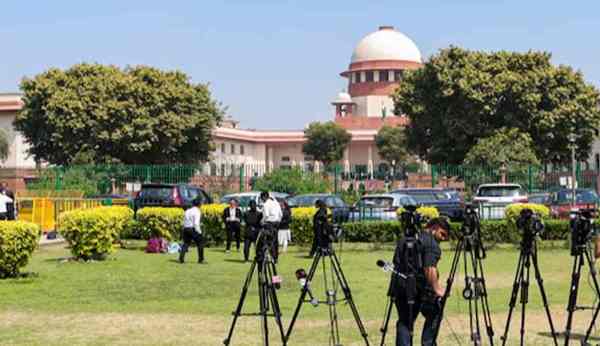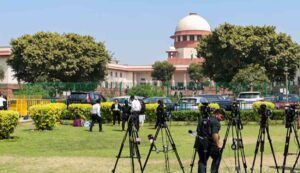
Uttar Pradesh: On Tuesday, the Supreme Court affirmed the constitutionality of the “Uttar Pradesh Board of Madrasa Education Act 2004” and overturned the March 22 ruling of the Allahabad High Court that had declared the Act unconstitutional.

However, a panel of Justices JB Pardiwala and Manoj Misra, together with Chief Justice of India DY Chandrachud, ruled that the Madarsa Act was unconstitutional since it regulated higher education in regard to “Fazil” and “Kamil,” which is against the UGC Act.
When rendering a decision on appeals against the High Court’s ruling, the bench said that the Madarsa Act governs the educational standards in the State of Uttar Pradesh.
It also said that the state has the authority to control the quality of education provided by minorities and that their ability to run educational institutions is not unqualified.
The UP Madrasa Act was overturned by the Allahabad High Court on the grounds that it violated secularism, which is a fundamental aspect of the Constitution.
According to the Supreme Court, a statute may be overturned for violating Section III of the Constitution’s fundamental rights or for lacking legislative authority, but not for violating its essential structure.
“The Act’s legislative plan aims to standardize the educational requirements set by madrasas. The Madrasa Act has little bearing on how the madrasas operate on a daily basis. According to the highest court’s ruling, it is to safeguard the rights of the minority in the State of Uttar Pradesh and is in line with the state’s affirmative commitment to guarantee that students graduate and make a respectable life.
The Supreme Court emphasized the need to take action to protect India’s “melting pot of cultures, civilisations, and religions” throughout the case hearing.
It had said that other faiths also have similar religious teachings, thus they are not exclusive to the Muslim community.
According to NCPCR, the education provided to students at madrasas is not complete and, as a result, violates the 2009 Right to Education Act.
Although the state has accepted the verdict, the Uttar Pradesh administration had previously said that it supported the law.
The highest court’s decision followed an appeal against the High Court’s order declaring the “UP Board of Madarsa Education Act 2004” unlawful and a violation of basic rights and secularism.
Anjum Kadari, the Managers Association Madaris Arabiya (UP), the All India Teachers Association Madaris Arabiya (New Delhi), the Manager Association Arbi Madarsa Nai Bazar, and the Teachers Association Madaris Arabiya Kanpur filed the appeals against the High Court ruling.
Students may study Islamic studies and other forms of education in madarsas.
The Allahabad High Court ruled on March 22 that the 2004 Act violated the secular concept outlined in the Indian Constitution.
The High Court further ordered the state to act right away to provide additional educational options for pupils studying in Uttar Pradesh’s Madarsas.